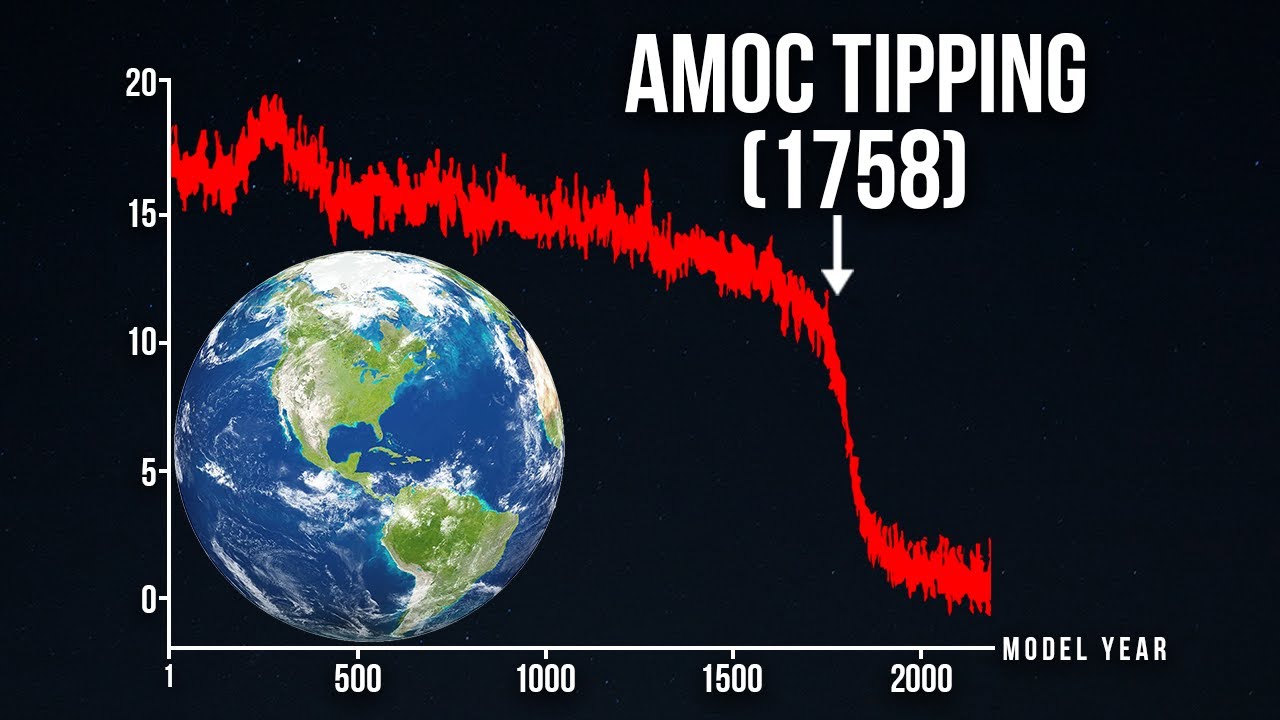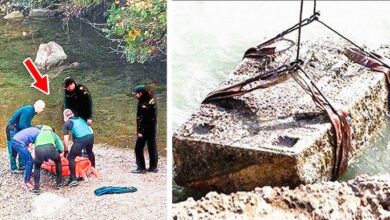Why The AMOC Is So Unstable And Could Collapse

Why the AMOC Is So Unstable and at Risk of Collapse
For the past 12,000 years, the Atlantic Meridional Overturning Circulation (AMOC) has played a vital role in maintaining sea levels and stabilizing Earth’s climate. However, if this critical system collapses, it could lead to devastating consequences, such as catastrophic flooding in cities like Miami and New York, frigid Siberian-like winters in the UK, and significant disruptions to ecosystems like the Amazon rainforest.
Why Is the AMOC Becoming Unstable?
Scientists have long debated the stability of the AMOC. While some argue it is already weakening, others believe there is insufficient evidence. Ocean temperatures are now breaking records globally, with the average sea surface temperature reaching an unprecedented 21.09°C (69.8°F) in early 2024.
Yet, in the North Atlantic lies an anomaly—a “cold blob” south of Greenland and west of Ireland. This area defies climate models and is believed to be linked to the melting of Greenland’s ice sheet, which releases vast amounts of freshwater into the ocean. This dilution reduces salinity, contributing to the AMOC’s slowdown.
Until recently, scientists believed the AMOC would remain stable through the 21st century. However, recent research warns of a possible collapse as soon as 2037. This shift could radically alter global weather patterns and sea levels.
What Is the AMOC?
The AMOC is like a giant conveyor belt, moving warm, salty water from the tropics northward and returning cooler, denser water southward. This system doesn’t just circulate water—it regulates global climate by balancing temperatures and distributing heat. For example, the AMOC influences rainfall in the tropics, moderates winter temperatures in Europe, and impacts the strength of Atlantic hurricanes.

The Gulf Stream and Its Role
The Gulf Stream, a component of the AMOC, flows along Florida’s coast and helps maintain Northwestern Europe’s mild climate. As the Gulf Stream travels across the Atlantic, it loses heat to the atmosphere, becoming cooler and saltier. When this denser water reaches the North Atlantic, it sinks, fueling the deep ocean currents that drive the AMOC.
The Risk of Collapse
The AMOC has collapsed multiple times throughout Earth’s history, often triggering dramatic climate shifts. Today, climate change has become the main driver of its instability. A key tipping mechanism is the salt-advection feedback, where an influx of freshwater from melting ice disrupts the AMOC.
Recent studies suggest previous climate models underestimated how quickly the AMOC could change. Using advanced reanalysis data, scientists now have a clearer picture of current oceanic conditions. However, predicting the exact timing of a collapse remains challenging, with estimates ranging from as early as 2025 to later this century.
Why Does This Matter?
An AMOC collapse would have far-reaching consequences. Northwestern Europe could experience winters up to 10°C colder, while tropical regions might face severe disruptions in rainfall. The Amazon rainforest, a critical oxygen source, could see its wet and dry seasons reversed, potentially destabilizing its ecosystem. Additionally, sea levels in the North Atlantic could rise by about one meter, threatening coastal communities and infrastructure.
The ripple effects wouldn’t stop there. As the southern hemisphere warms faster, Antarctica’s ice sheets could melt more rapidly, further exacerbating global sea level rise.
What Can Be Done?
The AMOC’s potential collapse is a stark reminder of the urgency to cut greenhouse gas emissions and mitigate climate change. While pinpointing the exact timing of its decline is challenging, the focus should be on preventing it. Ignoring the warning signs is akin to driving toward a cliff and waiting for someone to tell you the exact moment you’ll fall.
This is a global issue requiring immediate action. If the AMOC collapses, the consequences will be felt far beyond Northwestern Europe—affecting weather patterns, ecosystems, and human societies worldwide.








